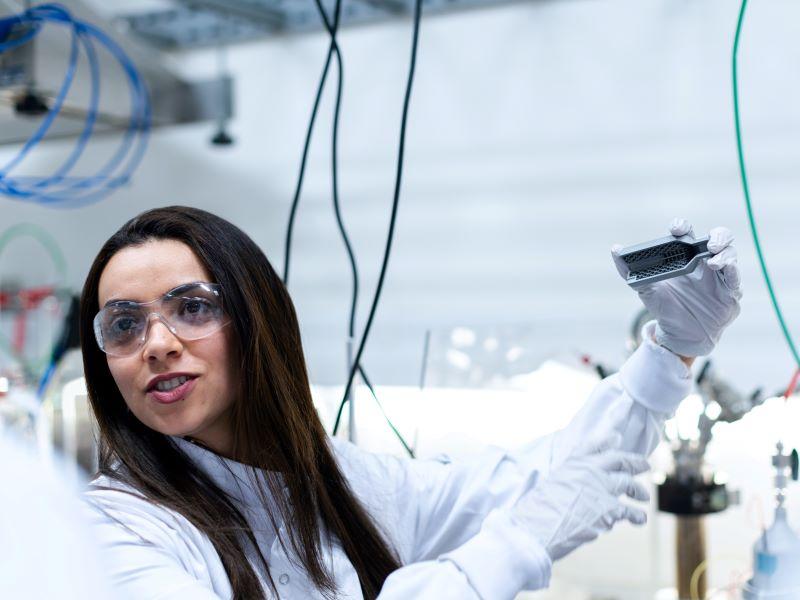The suggestion that embarking on doctoral research is a lonely endeavour is hardly a revelatory one. Indeed, there’s even a suggestion that enduring periods of loneliness constitutes a rite of passage en route to becoming a “proper” academic.
It’s certainly true that being an early career researcher (ECR) does require the capacity to work independently and alone. And yes, part of the joy of completing a doctorate is even found here; it represents the chance to conduct research into an original topic that is of substantial interest specifically to you. However, I refuse to subscribe to the mindset that working alone means you must condemn yourself to a life of loneliness. This is critical to maintain creativity, ideas and enthusiasm for your work.
ECRs are embedded in several communities, and in the midst of focusing on research it can be easy not to recognise them. Having left the classroom and gained the privilege of time to focus on my research, days previously filled interacting with upwards of 150 students and colleagues, longing for a mere moment of peace, became moment upon moment alone with my thoughts. And alongside this, the sometimes-paralysing fear that my own thoughts were very dull indeed.
- Bullying by supervisors is alive and well – now is the time to tackle it
- Researchers: fight back against your struggle with self-promotion
- So you want a novel way to support untapped research talent?
The first insight here is that the practitioner-researcher divide is inexplicably still too large. Greater recognition and awareness of the benefits and availability of a wide range of doctoral pathways (EdD, DBA, MPhil) is needed. Becoming an ECR need not necessarily mean full-time study on a traditional PhD programme. If your research is connected to a professional community, then it is invaluable to remain engaged with it, be this through official organisations and associations, former colleagues, volunteering or part-time work.
Alongside this, researchers should be aware of the benefits of finding what might be termed their “PhD pals”. That is, people who are on the same voyage, engaged in a similar pattern of reading, writing and thinking. To address this, I started a writing group for other postgraduate researchers. Momentum built slowly, and at first just me and two other researchers met fortnightly face to face. We then moved online and met weekly because of the pandemic.
As it turned out, the online format was more inclusive of people’s working patterns and resulted in increased numbers. While the group does provide time to get some work done, the real value of the meetings lies in the 10-minute breaks between the writing sessions. Subject similarity is not of import here, rather the regular contact with other people facing similar highs and lows. I implore ECRs to find or start a writing or reading group that connects them to others in a similar situation.
The research community is not the only one that’s important. Few people go into research purely for their own benefit. Research aims to further knowledge in the public interest. In practice, this means being able to meaningfully engage with people outside the research community about your work.
There is definite value in thinking about how, once finished, you might disseminate the findings of your research more widely than publication in academic journals. But in the meantime, there’s also merit in working out how to explain your research in such a way as to open conversations. After all, being in a conversation where you do not understand what the other person is talking about is both frustrating and tedious. And yet the golden nuggets that inspire ideas could well be found in a chat with a neighbour, friend or sibling. Being able to explain your work in a genuinely engaging and comprehensible way is vital to opening this dialogue.
As an ECR, it’s all too easy to be drawn into pressure to complete your PhD as soon as possible, publish, contribute to the research excellence framework and secure future work for yourself. Along the way, it’s very possible to become convinced that you don’t have sufficient time to engage with the communities described above. However, doctoral research really does seem to be a case of slow and steady. That being the case, reconceptualising the process as one where you’re learning the tools of the trade means it becomes acceptable to take time out to do other related work, internships or reading on unrelated topics. These can also be very helpful in the battle against loneliness, not just because they might bring you into contact with other people but because taking genuine ownership of your work is empowering and motivating.
Last, online is excellent in many ways, but it’s also certainly an isolating factor for many ECRs. It lacks the benefit of those much-vaunted “corridor conversations”, those moments where you spend five blissful, spontaneous minutes talking to someone. The topic is unpredictable, but so often they are valuable and incisive moments.
Grasp any in-person opportunities with both hands and make time for them. While more accessible and environmentally beneficial, online events alone cannot sustain ECRs. We need contact with other people, both our peers and more experienced colleagues, for those precious snippets of conversation.
Rebekah Ackroyd is a doctoral student at the University of Cumbria and the Early Career Researcher Network regional rep for the north of England.




comment